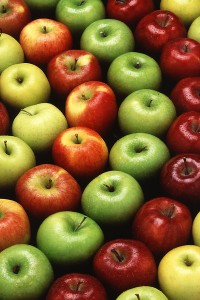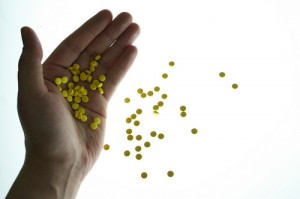Part I of Irritable Bowel Syndrome (IBS) Do’s and Don’ts covered bad eating habits and lifestyle choices that cause IBS; now, learn how testing for vitamin B12 deficiency or other illnesses, along with eating healthy digestion-friendly foods, can help to promote intestinal health where IBS occurs.
Recap: Irritable bowel syndrome (IBS) is a digestive disorder that causes stomachache, heartburn, and nausea. Sometimes, IBS correlates with vitamin B12 deficiency; other times, IBS happens because of other comorbid conditions or bad eating habits.
#1 Do this! Check your vitamin B12 levels
Often, people who suffer from digestive problems also have dangerously low vitamin B12 levels, as many GI disorders like Crohn’s disease, celiac disease, fibromyalgia, gastritis, and general IBS may cause vitamin B12 deficiency-pernicious anemia.
Getting a blood test for vitamin B12 deficiency is crucial if you suffer from IBS- untreated, vitamin B12 deficiency can cause severe nerve damage, reduced cognitive functioning, emotional disorders, movement disorders, and increased risk for heart attack and stroke.
If you are diagnosed with vitamin B12 deficiency, then your doctor will need to prescribe vitamin B12 (cobalamin) supplements, usually in the form of vitamin B12 shots.
#2 Do this! See a gastroenterologist.
If you’ve been suffering from stomach problems for a long time, then make an appointment with a gastroenterologist. In order to diagnose IBS, your doctor will have to rule out other possibilities, such as GERD, ulcer, lactose intolerance, food allergies, celiac disease, or esophagitis.
#3 Do this! Eat healthy foods
To promote digestive health, eat a diet of whole, low-fat foods. A healthy diet always includes fiber from whole grains, fruits, and vegetables, in addition to lean proteins. To replenish electrolytes, eat small amounts of oatmeal topped with banana slices.
#4 Do this! Take digestive enzymes
Your body produces 22 digestive enzymes naturally to help you break down food and access essential vitamins and minerals. One of them is intrinsic factor, an enzyme produced in your stomach that aids in digesting vitamin B12. Lack of intrinsic factor may be caused by an autoimmune disorder or damage to your esophagus, leading to vitamin B12 deficiency.
Some plant-based digestive enzymes are available in pill form, including amylase, lipase, cellulase, and protease.
#5 Do this! Eat healthy bacteria
For optimum digestion, snack on foods containing healthy “good” bacteria. Yogurt or kefirs are healthy if you’re lactose-tolerant; look out for brands that are labeled with “live and active cultures.” Kimchi, a pickled cabbage condiment, is doubly healthy for your digestive system; one, because it replenishes the GI tract with health flora, and two, because cabbage is a non-digestible fiber that helps your body remove toxins and waste.
Gut Bugs:Winning the Bacteria Battle
#6 Do this! Enjoy ginger
In small doses (2 to 4 grams), fresh or dried ginger helps to maintain digestive health and increase appetite. For ginger juice, grate ginger and then run through a garlic press, catching the droplets in a cup. Add to tea, stews, or salads. Be careful- ginger is very potent, and too much can cause heartburn.
#7 Do this! Listen to your body cues
Overeating and indigestion often occur because we eat too quickly and don’t pay attention to our body cues. Just as you get hunger pangs when it’s time to eat, you also get subtle cues when you’ve had enough, and some not-so-subtle cues- stomachache and heartburn- that you’ve overindulged. One of the most important lessons in eating healthy is learning to tell the difference between hunger and cravings, and to know when you’re satisfied.
#8 Do this! Take the right medicine
Certain medications your doctor may prescribe for treating indigestion may include antidiarrheal medicines, antispasmodics, or laxatives.
Proton Pump Inhibitors (PPIs) – B12 Deficiency and 5 other Health Risks
#9 Do this! Put a curfew on eating
At the end of the day, you tend to slow down; so does your metabolism. Eating a big dinner that includes desserts is a sure way to cause debilitating indigestion. Instead, eat an early dinner, or make lunchtime the biggest meal of the day, and resist the temptation to snack in the evening after 6:00 or 7:00 pm.
#10 Do this! Exercise
Regular exercise promotes healthy digestion by reducing stress, boosting your metabolism, helping your maintain a healthy weight, and increasing circulation. To benefit from exercise, you don’t need to succumb to intense, 40-minute workouts. Just walking, riding a stationary bike, or swimming for 20-30 minutes each day is enough to prevent heart disease, obesity, and digestive disorders.
Please tell us…
Have you been experiencing unusual stomach problems, such as feeling uncomfortably full after eating light meals, waking up in the middle of the night with acid reflux, or chronic diarrhea? Have you had your vitamin B12 levels tested? IBS sometimes causes pernicious anemia from vitamin B12 deficiency.
As always, we welcome your comments, suggestions, and questions.
Spread the love…
Please share this article with your friends and family on Facebook or Google+!
Read more about vitamin B12 deficiency and IBS
Top 20 Irritable Bowel Syndrome (IBS) Do’s and Don’ts- Part I: Don’t do that!
8 Ailments Linked with Gastritis, including B12 Deficiency
Absorbing Vitamin B12, a Metabolic Gastrointestinal Journey
Sources:
Pernicious anemia: MedlinePlus Medical Encyclopedia
Images:




